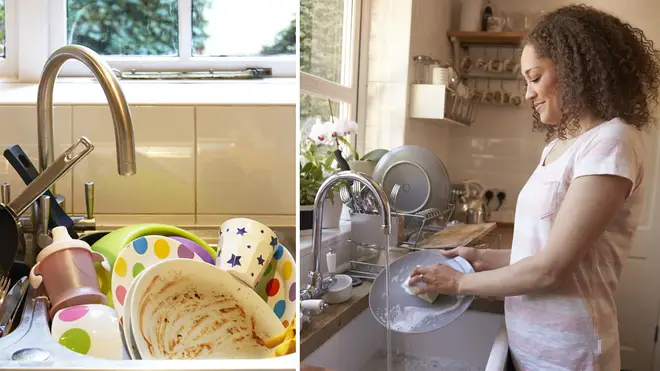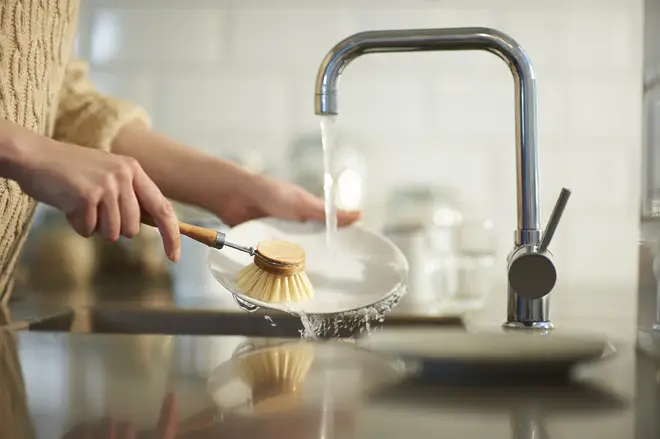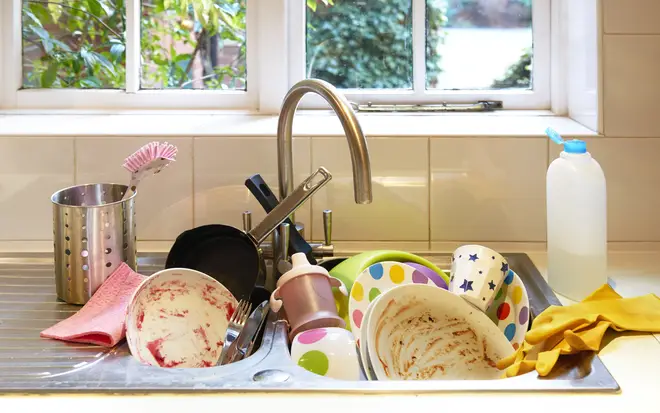On Air Now
Heart Breakfast with JK and Amanda Holden 6:30am - 10am
22 January 2021, 15:13

You might have been washing up the wrong way your entire life.
When it comes to washing up, we all want the same thing – clean, sparkling and fresh results.
But if you sometimes find yourself missing harsh stains or misty glasses, it could all be down to the order you're washing up in.
READ MORE: Laundry expert claims 'ice cube hack' will mean you'll never have to iron clothes again

The experts at Good Housekeeping have revealed the exact order you should be washing up your items for the ultimate clean.
They recommend you start with glasses and mugs before moving on to saucers and side plates, followed by cutlery, pans and roasting tins.
The full order is below:
1. Glasses
2. Mugs
3. Saucers
4. Side plates
5. Dinner plates
6. Cutlery
7. Serving dishes
8. Pans
9. Roasting tins

The Good Housekeeping experts say: “Follow this order to keep your water and your dishes as clean as possible during the washing process: in hot, soapy water, begin by washing glasses, then lightly soiled dishes such as mugs, saucers and side plates.
“Next wash the large eating plates, followed by the cutlery. Do serving dishes, pans and roasting tins last."
They also added that for the perfect clean you should pop on a pair of marigolds as this allows you to have the water even hotter, which will work better at getting rid of stains and grime.
What you're washing up with is also important, as cloths and brushes can contain a nasty amount of bacteria.
The expert said: “Harsh scourers might be great at removing stubborn stains, but they can damage soft materials like plastic or crockery with delicate patterns.”
So, instead, they suggest using softer cloths on pots and pans – and make sure you're changing them regularly.
READ NOW: Sleep expert suggests sewing a tennis ball into pyjamas to prevent snoring